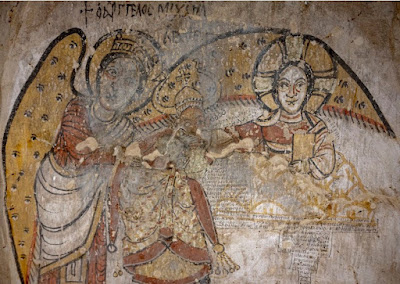Dated Tuesday, 26 December 2023 - here is a copy in full:
Church leader’s Christmas message to Sudan’s Christians
Rafaat Mosad, the president of the Council of the Evangelical Community in Sudan, sent a Christmas message yesterday “to all Sudanese in and outside Sudan”, with special mention of refugees and displaced peoples.
In his message, Mosad wished “love, peace and abundant mercy” to all, wishing a good year on the anniversary of the birth of Jesus Christ. He expressed his hopes that this Christmas will be the last one in which Sudan will witness war and conflict.
“We thank God for every church that celebrated Christmas within Khartoum and across Sudan despite the nation’s pain, as they eased the people and all those who suffer in the country by celebrating them.”
He also thanked every evangelical church and school which opened its doors to the displaced in Sudan, and “shared with them a simple bite and simple joys, shared and endured their pain”. He urged the churches and their members to “continue to do good”.
“To all the displaced, refugees and dispersed: God is with you and will not forget you.” He prayed for God’s “peace, patience, mercy and intervention to stop the fighting and conflicts in our country”.
The priest thanked God for “everyone who did not give in to despair, did not give in to death, did not give in to all frustration, and still clings to the God of hope, and put his hope on a better tomorrow because God exists and has not forgotten him”.
During the reign of Islamic dictator Omar Al Bashir (1989-2019), non-Muslims were regularly oppressed. Christian worshipers were prevented to visit churches on Sundays, and a number of church buildings, many of them belonging to the poor Church of Sudan, were demolished. Since 2017, Christian schools were forced to follow the Muslim week calendar from Sunday to Thursday.
One of the first decisions made by the then Transitional Military Council after the ousting of Al Bashi, concerned the permission to enjoy Sunday as the official weekend recess day for Christian schools throughout Sudan.
* Archaeologists from the Polish Centre of Mediterranean Archaeology, University of Warsaw (PCMA UW), have made stunning discoveries in Old Dongola (Tungul) in Sudan’s Northern State. Announced in April, the Polish team discovered a complex of rooms made of sun-dried bricks, the interiors of which were covered with murals showing figural scenes of early Christian art.
View original: https://www.dabangasudan.org/en/all-news/article/church-leaders-christmas-message-to-sudans-christians
ENDS

